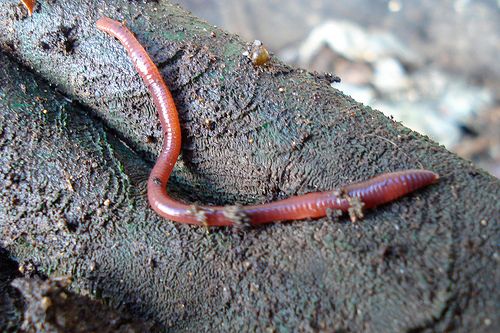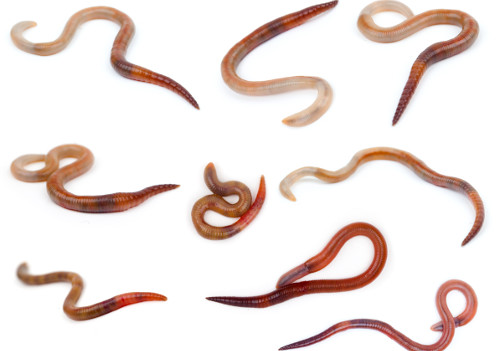Red Wiggler Worms - Perfect for Vermicomposting and Soil Enrichment
Red Wiggler Worms Demystified: Unlocking the Secrets of Vermiculture for Greener Living and Nutrient-Rich Soil
In the world of lasting practices for enhancing soil top quality and promoting eco-conscious living, red wiggler worms play an essential yet often neglected function. These humble creatures have the remarkable capacity to change natural waste right into nutrient-rich castings that act as a potent all-natural plant food. By diving right into the globe of vermiculture, one can uncover a huge selection of benefits that extend much beyond conventional composting methods. Understanding the ins and outs of caring for these worms, maximizing their environment, and harnessing their castings can lead to a greener way of living and much healthier dirt for plants to flourish.
The Role of Red Wiggler Worms
Red Wiggler worms play an essential role in composting systems by effectively breaking down raw material into nutrient-rich spreadings. These starved eaters consume a variety of organic products, such as kitchen scraps, lawn waste, and paper items. As they feed, the worms' digestive procedures damage down the natural matter into a penalty, dark, and nutrient-dense material referred to as worm castings or vermicompost.
The spreadings generated by Red Wiggler worms are highly advantageous for soil health and plant growth. They are abundant in necessary nutrients like phosphorus, potassium, and nitrogen, which are essential for sustaining healthy and balanced plant advancement. Furthermore, worm spreadings have helpful microorganisms and enzymes that assist enhance dirt framework, boost water retention, and boost nutrient uptake by plants.
Advantages of Vermicomposting

It boosts soil structure, enhances soil aeration, and enhances soil dampness retention. Vermicompost likewise improves the dirt with necessary nutrients like phosphorus, potassium, and nitrogen, advertising plant development and general soil fertility.
Furthermore, vermicomposting supports sustainable horticulture techniques by providing a chemical-free and natural option to artificial plant foods. Red Wiggler Worms. This eco-friendly method not only enriches the soil however likewise helps lower dependence on damaging chemicals, promoting a greener and a lot more sustainable way of horticulture
Establishing a Worm Container
When developing a worm container for vermicomposting, proper arrangement is vital to make certain the success of the composting procedure. The initial action in establishing up a worm bin is choosing a suitable container.
After including the bed linen, introduce the red wiggler worms to the container. It is suggested to begin with a tiny number of worms and gradually enhance as they increase. The worms ought to then be offered with food scraps such as vegetables and fruit peels, coffee grounds, and eggshells. It is vital to prevent including meat, milk, oily, or salted foods to stop attracting bugs and developing undesirable odors.
On a regular basis check the wetness levels and temperature in the worm bin to make sure optimal problems for the worms. With correct setup and maintenance, the worm bin will efficiently transform natural waste right into nutrient-rich compost for your plants and yard.
Harvesting Worm Castings
To efficiently collect nutrient-rich worm castings from your vermicomposting system, a methodical harvesting approach is essential. When it comes time to collect the worm spreadings, there are a couple of crucial actions to comply with to guarantee an effective procedure.

Troubleshooting Common Issues
Determining and attending to usual obstacles that might arise throughout the vermicomposting procedure is essential for preserving a healthy and productive worm bin. One typical problem that vermicomposters experience is overfeeding. Including excess food scraps can result in a buildup of moisture and level of wikipedia reference acidity in the worm container, possibly harming the worms. To avoid this, feed the worms in moderation, guaranteeing that the food scraps are properly broken down before including much more. Another concern is undesirable smells originating from the worm bin. Foul smells suggest anaerobic problems, normally brought on by overwatering or insufficient ventilation. To fix this, change the dampness levels by adding dry bedding products like shredded newspaper or cardboard and rise oygenation by transforming the bedding on a regular basis.
In addition, if the worm populace is decreasing or the worms appear unhealthy, it could be due to environmental stress factors such as severe temperature levels or pH levels. Keeping track of these factors and making necessary changes is important for the well-being of the worms. By troubleshooting these usual problems promptly, vermicomposters can guarantee a smooth and successful vermicomposting process while keeping a prospering worm populace.

Final Thought
Finally, red wiggler worms play an essential duty in vermiculture by damaging down organic matter into nutrient-rich dirt. The benefits of vermiculture include greener living and boosted dirt high quality. Establishing a worm bin is necessary for successful vermiculture, and gathering worm spreadings gives useful garden compost for horticulture. By recognizing and repairing typical issues, people can open the keys of vermiculture for lasting see post living and healthier dirt.
As they feed, the worms' digestive system processes break down the natural issue right into a penalty, dark, and nutrient-dense material understood as worm spreadings or vermicompost.
The castings created by Red Wiggler worms are extremely helpful for dirt health and plant growth. Adding excess food scraps can lead to an accumulation of dampness and acidity in the worm container, potentially harming the worms.Additionally, if the worm populace is decreasing or the worms appear harmful, it can be due to ecological stress factors such as extreme temperature levels or pH levels. Setting up a worm bin is vital for successful vermiculture, and gathering worm spreadings supplies beneficial compost for horticulture.